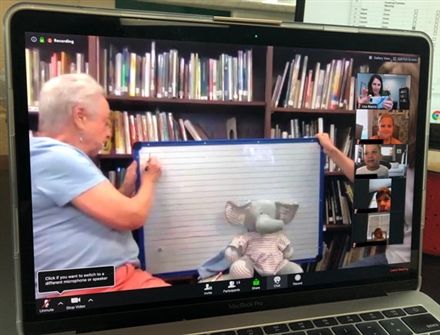

EMOTIONAL WELLBEING DURING A GLOBAL PANDEMIC
Source/Author: Courtney Ellis & Kate Fierce, Shorecrest Counselors
March 20, 2020
Our daily lives have changed in ways that might have been unimaginable even a week ago. We are all feeling a wide range of emotions as a result of the changes in our lives due to COVID-19: anxiety, sadness, anger, loss, loneliness, frustration, maybe even irritation. These emotions are, of course, very normal human reactions to such an extraordinary circumstance. Furthermore, we know that children can be very influenced by the emotional states of the adults who are caring for them. With that in mind, we can help both ourselves and our children by identifying ways to manage our stress and build resiliency during these trying times.
The field of neuroscience tells us that real and perceived threats to our safety can cause an integral part of our brain, the amygdala, to flip us into a state of fight, flight, or freeze. When stress, anxiety, or other negative emotions cause this amygdala flip, our brain shuts down its capacity for higher order thinking in order to react quickly to the present threat. In this way, high levels of stress can make it very difficult to problem solve, organize, or implement a planned solution.
Right now, we adults have quite a lot going on that could cause our amygdalas to flip, and understandably so! We are dealing with constant change and great uncertainty. We are at home, with our families, trying to work and keep them working. We are worried about loved ones who may be elderly, sick, or otherwise more vulnerable to COVID-19. Many of us are concerned about our jobs, our finances, or our access to needed resources. We have lost some of our healthiest outlets, such as socializing with friends and going to the gym. We are grieving the loss of typical rites of passage in our kids’ youth. We have no timeframe for how long this will last. It’s no wonder if we are, at times, less than our best.
We are all doing the best we can, but it is important to remember that our children are watching. We are providing them with a moment-by-moment model of how to manage unknowns and respond to crises. Our anxiety as parents can be contagious to our children, especially as we are spending more time together. However (and this is a big however!), the way we respond to this anxiety can be contagious as well. With this in mind, it is important to convey proper concern and caution, provide accurate information at an age-appropriate level, and model a healthy and positive attitude toward our circumstances. As you and your family navigate the realities of social distancing and outbreak mitigation, we encourage you to keep the following considerations in mind:
Read the full post on our blog here: http://blog.shorecrest.org/emotional-wellbeing-during-a-global-pandemic.
The field of neuroscience tells us that real and perceived threats to our safety can cause an integral part of our brain, the amygdala, to flip us into a state of fight, flight, or freeze. When stress, anxiety, or other negative emotions cause this amygdala flip, our brain shuts down its capacity for higher order thinking in order to react quickly to the present threat. In this way, high levels of stress can make it very difficult to problem solve, organize, or implement a planned solution.
Right now, we adults have quite a lot going on that could cause our amygdalas to flip, and understandably so! We are dealing with constant change and great uncertainty. We are at home, with our families, trying to work and keep them working. We are worried about loved ones who may be elderly, sick, or otherwise more vulnerable to COVID-19. Many of us are concerned about our jobs, our finances, or our access to needed resources. We have lost some of our healthiest outlets, such as socializing with friends and going to the gym. We are grieving the loss of typical rites of passage in our kids’ youth. We have no timeframe for how long this will last. It’s no wonder if we are, at times, less than our best.
We are all doing the best we can, but it is important to remember that our children are watching. We are providing them with a moment-by-moment model of how to manage unknowns and respond to crises. Our anxiety as parents can be contagious to our children, especially as we are spending more time together. However (and this is a big however!), the way we respond to this anxiety can be contagious as well. With this in mind, it is important to convey proper concern and caution, provide accurate information at an age-appropriate level, and model a healthy and positive attitude toward our circumstances. As you and your family navigate the realities of social distancing and outbreak mitigation, we encourage you to keep the following considerations in mind:
Read the full post on our blog here: http://blog.shorecrest.org/emotional-wellbeing-during-a-global-pandemic.



















.png&command_2=resize&height_2=85)




